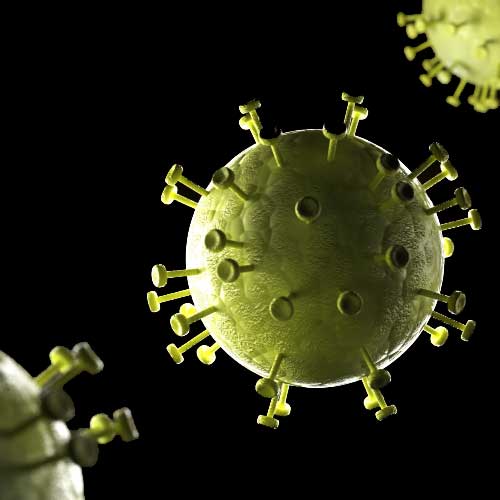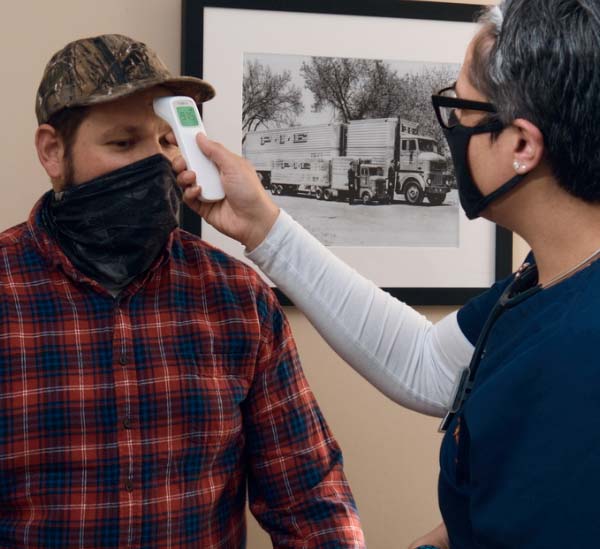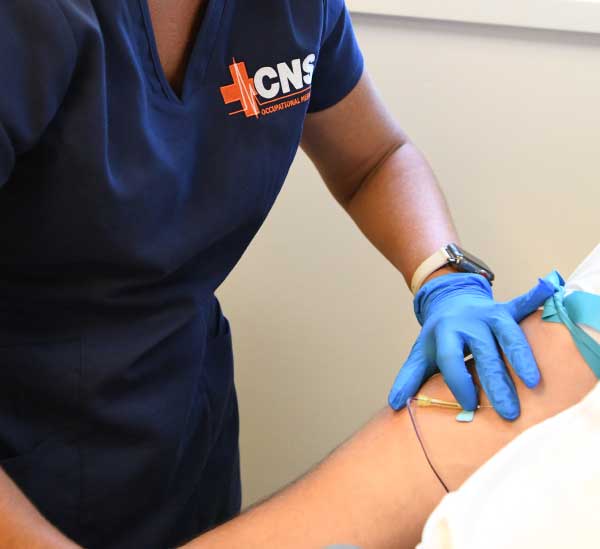Companies Sweat as OSHA Heat Rule Is Finally Announced
On July 2nd, OSHA proposed a long-anticipated rule that outlines steps employers must take to protect indoor and outdoor workers from the risk of heat
We offer consulting services for a number of services including DOT and Non-DOT Drug Testing. Also, you can take advantage of our online training courses at CNS Learning Hub to train your employees.
We offer consulting services for a number of OSHA services from Respiratory Fit Testing to Noise Surveys and Noise Abatement to best practices to protect your employees from Silica Dust. Also, you can take advantage of our online training courses at CNS Learning Hub to train your employees.
Compliance Navigation Specialists (CNS) is specifically focused on trucking companies and keeping them DOT Compliant. The DOT Compliance Programs make things simple for motor carriers.
We offer consulting services for a number of services including DOT and Non-DOT Drug Testing. Also, you can take advantage of our online training courses at CNS Learning Hub to train your employees.
We offer consulting services for a number of OSHA services from Respiratory Fit Testing to Noise Surveys and Noise Abatement to best practices to protect your employees from Silica Dust. Also, you can take advantage of our online training courses at CNS Learning Hub to train your employees.
Compliance Navigation Specialists (CNS) is specifically focused on trucking companies and keeping them DOT Compliant. The DOT Compliance Programs make things simple for motor carriers.
CNS Companies is a network of companies specializing in services related to the transportation, manufacturing, construction, service, education and medical industries. Each division offers specific services, all related to DOT- and OSHA-regulated companies.
On July 2nd, OSHA proposed a long-anticipated rule that outlines steps employers must take to protect indoor and outdoor workers from the risk of heat
We offer consulting services for a number of services including DOT and Non-DOT Drug Testing. Also, you can take advantage of our online training courses at CNS Learning Hub to train your employees.
We offer consulting services for a number of OSHA services from Respiratory Fit Testing to Noise Surveys and Noise Abatement to best practices to protect your employees from Silica Dust. Also, you can take advantage of our online training courses at CNS Learning Hub to train your employees.
Compliance Navigation Specialists (CNS) is specifically focused on trucking companies and keeping them DOT Compliant. The DOT Compliance Programs make things simple for motor carriers.
We offer consulting services for a number of services including DOT and Non-DOT Drug Testing. Also, you can take advantage of our online training courses at CNS Learning Hub to train your employees.
We offer consulting services for a number of OSHA services from Respiratory Fit Testing to Noise Surveys and Noise Abatement to best practices to protect your employees from Silica Dust. Also, you can take advantage of our online training courses at CNS Learning Hub to train your employees.
Compliance Navigation Specialists (CNS) is specifically focused on trucking companies and keeping them DOT Compliant. The DOT Compliance Programs make things simple for motor carriers.
CNS Companies is a network of companies specializing in services related to the transportation, manufacturing, construction, service, education and medical industries. Each division offers specific services, all related to DOT- and OSHA-regulated companies.
On July 2nd, OSHA proposed a long-anticipated rule that outlines steps employers must take to protect indoor and outdoor workers from the risk of heat
All of the below Lab Testing is for a business that needs to test their employees regularly or upon hiring. Testing for heavy metal poisoning is necessary and may apply to jobs related to construction work, mining, radiator repair shops, firing ranges, etc.
Heavy metals testing is used to screen for or diagnose heavy metal poisoning in those who may have been exposed to one or more heavy metals, and to monitor excessive metal concentrations in those who work with various heavy metals. Such occupations include construction work, mining, radiator repair shops, and firing ranges. Our laboratory offers several different groupings to fit your unique needs.
A worker’s exposure to hazardous materials on the job can be unknowingly brought back to a person’s home. Heavy metals such as lead dust, concrete-crusted clothing, and a variety of oils, greases, and solvents can all unintentionally poison the employee and/or their family. Heavy metal exposure can affect individuals in different ways and those who have underlying health conditions may be even more vulnerable. Employers have the responsibility to protect the safety and health of the worker by having a safety policy in place.

Occupational exposure to lead is one of the most prevalent overexposures. OSHA requires lead levels to be monitored for those that have frequent exposure to lead. Industries with high potential exposure include:
Large amounts of zinc can cause:
Common sources of mercury exposure include the mining, production, and transportation of mercury, as well as mining and refining of gold and silver ores. High mercury exposure results in permanent nervous system and kidney damage.
Cadmium is a very toxic metal commonly found in industrial workplaces, particularly where any ore is being processed or smelted.
Chromium, a brittle metal, can be toxic in greater amounts and is recognized as a human carcinogen.

OSHA requires that the hepatitis B vaccine be offered to healthcare personnel who have a reasonable expectation of being exposed to blood or body fluids on the job. OSHA also recommends that other personnel such as sanitation workers, custodial staff, waste disposal and housekeeping be offered the hepatitis B vaccine.
CNS Occupational medicine offers the hepatitis B vaccine series, as well as the hepatitis B titer which can be drawn before the vaccines are given to see if the employee already has immunity. We will also draw a titer after the vaccine series has been given to ensure that a booster is not required.
In addition to the hepatitis B vaccine, OSHA requires that these staff members also be trained on the Bloodborne Pathogens Standard.
Many companies and occupations are required by OSHA to provide TB testing to their employees who are at particular risk, for example healthcare workers, first responders and employees in a respiratory protection program. If your company falls under this standard, we offer several options for TB testing to meet your needs.
Commonly Ordered TB Testing:


We offer comprehensive wellness panels to measure the overall health and wellness of your employees. This can be done as part of our Wellness Lab Test or a separate entity. The vital data provided by these tests can help save employees’ lives and reduce long-term health care costs. We also have trained wellness experts who provide friendly, confidential wellness education after the results.
Commonly Ordered Wellness Panels:
The test tells you your average level of blood sugar over the past 2 to 3 months. This is helpful in evaluating the long-term control of blood glucose concentrations in patients with diabetes, diagnosing diabetes and identifying patients at increased risk for diabetes (prediabetes)
Testing includes triglycerides, total cholesterol, HDL and LDL. This test is an important early screening for coronary artery disease.
A blood sugar test is a procedure that measures the amount of sugar, or glucose, in your blood at the time of the test. This test helps to diagnose diabetes. People with diabetes can also use this test to manage their condition.
A TSH test measures the amount of thyroid stimulating hormone (TSH) in your blood. A thyroid panel checks the thyroid gland, which regulates crucial hormones and can impact mood, energy level, and metabolism and can help diagnose hypothyroidism or hyperthyroidism.
The PSA test is a blood test used primarily to screen for prostate cancer. The test measures the amount of prostate-specific antigen (PSA) in your blood.
Regular blood testing is one of the most important ways to keep track of your overall physical well-being. Below are standard bloodwork panels that help to provide a “big picture” of an employee’s overall health.
Common Standard Bloodwork Panels:

A BMP checks kidney function, lung function, and blood sugar levels by testing blood filtration, blood sugar, and electrolyte levels. This test can identify common kidney problems, lung problems, and diabetes or pre-diabetes.
A CMP covers the tests included in a BMP with additional tests related to liver function.
A CBC checks red blood cells, white blood cells, and platelets. A CBC can identify conditions including anemia, heart disease, autoimmune disease, leukemia, and other cancers.
A urinalysis involves checking the appearance, concentration and content of urine. Abnormal urinalysis results may point to a disease or illness.
If your kidneys are not functioning properly, an increased level of creatinine may accumulate in your blood. A serum creatinine test measures the level of creatinine in your blood and provides an estimate of how well your kidneys filter (glomerular filtration rate).
Immunity testing is available to help determine if an employee has immunities to certain viruses and if a vaccination is required
We offer comprehensive Wellness Lab Testing to measure the overall health and wellness of you or your employees. This can be done as part of an employee program or for individuals.
Testing includes triglycerides, total cholesterol, HDL and LDL. This test is an important early screening for coronary artery disease.
The test tells you your average level of blood sugar over the past 2 to 3 months. This is helpful in evaluating the long-term control of blood glucose concentrations in patients with diabetes, diagnosing diabetes and identifying patients at increased risk for diabetes (prediabetes).
A TSH test measures the amount of thyroid stimulating hormone (TSH) in your blood. A thyroid panel checks the thyroid gland, which regulates crucial hormones and can impact mood, energy level, and metabolism and can help diagnose hypothyroidism or hyperthyroidism.
We also offer many other Physicals, Screenings and Tests and Employer Services from Biometric Screenings to Work Injury Treatment Plans.
We offer a number of physicals related to DOT, Non-DOT Medical Services, and OSHA-Related work, such as DOT Physicals, Respirator and HAZMAT/HAZWOPER Physicals, and more.
We offer a number of screenings, tests, and other medical services from Biometric Screenings to Vaccinations to X-Rays, and more.
We offer services for all different types of employers, whether you are regulated by DOT, OSHA or any other government organization. We can manage your Work Injury Treatment Plans.
Save time and money by letting our team of professionals come to your large fleet or company.
Our Occupational Healthcare staff members specialize in Occupational Lab Testing Services and are ready to answer any questions you have whether you need In-Clinic Services or Onsite Clinic Services. All medical staff has very specific knowledge in Occupational Medicine, which is exactly what you need.

CNS Occupational Medicine is a Professional Company domiciled in Pennsylvania. In Delaware, CNS Occupational Medicine is referred to as CNS Occupational Medicine of Delaware Inc. CNS Occupational Health LLC is a management service company which provides services on behalf of Private Practices operating as Occupational Medicine clinic and employer on-site medical centers. The Private Practice has complete control with regards to all medical decision-making and patient care.. MSO provides consultation services and offers recommendations for the Private Practice to consider, reject, revise and/or adopt as it deems fit.